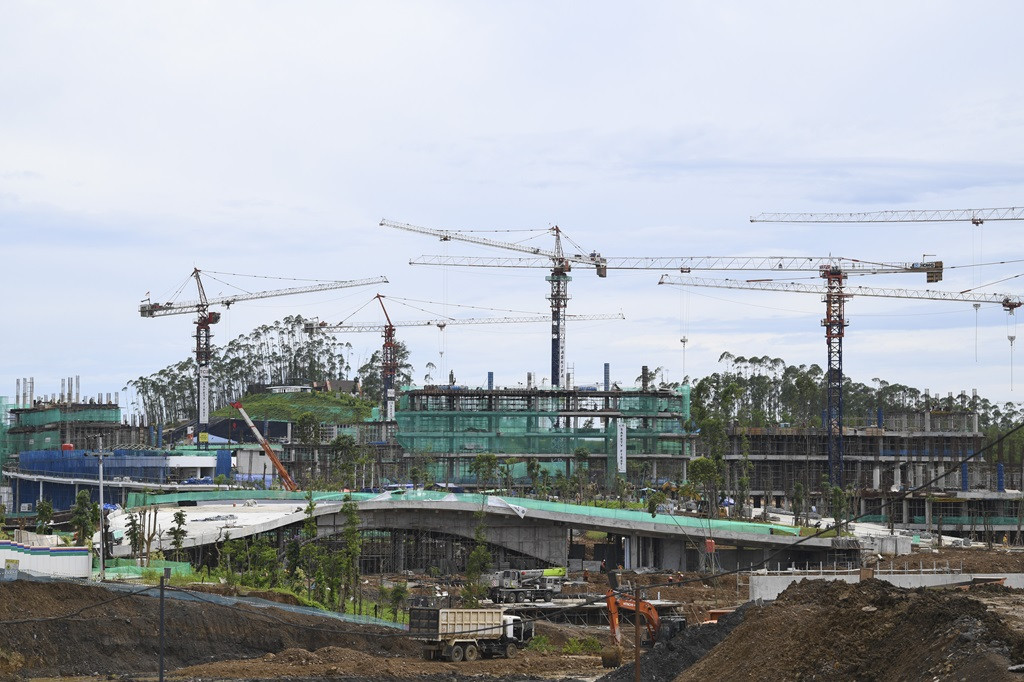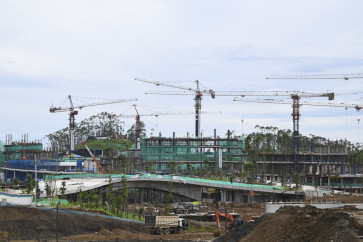Popular Reads
Top Results
Can't find what you're looking for?
View all search resultsPopular Reads
Top Results
Can't find what you're looking for?
View all search resultsFrom Sukarno to Jokowi: What Indonesia is still missing in development policy
Jokowi's maneuvers to cling to power through his son show that his plans chiefly aim to fulfil his ambition to concentrate power, with his family at the center.
Change text size
Gift Premium Articles
to Anyone

A country's journey to prosperity essentially centers on the struggle to control its natural resources to ensure the welfare of its people. For an archipelagic country like Indonesia, these struggles are, at their core, more geographic than political.
Power, population and wealth have long been concentrated in Java, Indonesia's most populous and developed island even before independence in 1945. Jakarta, known as Batavia under colonial rule, served as the capital of the Dutch East Indies and remains Indonesia’s capital today.
Despite President Joko “Jokowi” Widodo’s efforts to boost infrastructure outside of Java over the past decade, the island has remained a major center of growth, accounting for 56.5 percent of the country’s gross domestic product in 2022.
As Indonesia prepares for a general election and a national-scale transfer of power next year, whether and how to follow through with Jokowi’s plan to relocate the capital from Jakarta to East Kalimantan has become an existential debate. Beyond the personal ambitions of the President, the plan has also raised a stark question: Can Indonesia flourish beyond Java?
Since independence, the fair distribution of prosperity outside of Java has been a major challenge. In an attempt to maintain control over the archipelago, the Dutch campaigned for a federal system of government during the revolutionary period, in which the islands, including the new republic under Sukarno that covered Java, were to be states of the Netherlands-Indonesia Union.
The Dutch had appointed their supporters and allies from colonial rule to form the government in each federal state. These local officials, who were more familiar with Dutch systems and owed their authority to the distant nation, felt detached from the Republic of Indonesia under Sukarno.

The resentment planted seeds of discontent that grew into rebellions when the federal system collapsed and Jakarta moved to regain control over the states from the Dutch. The officials the Sukarno government appointed in the regions and the military commands it established there were met with resistance from local people.


















